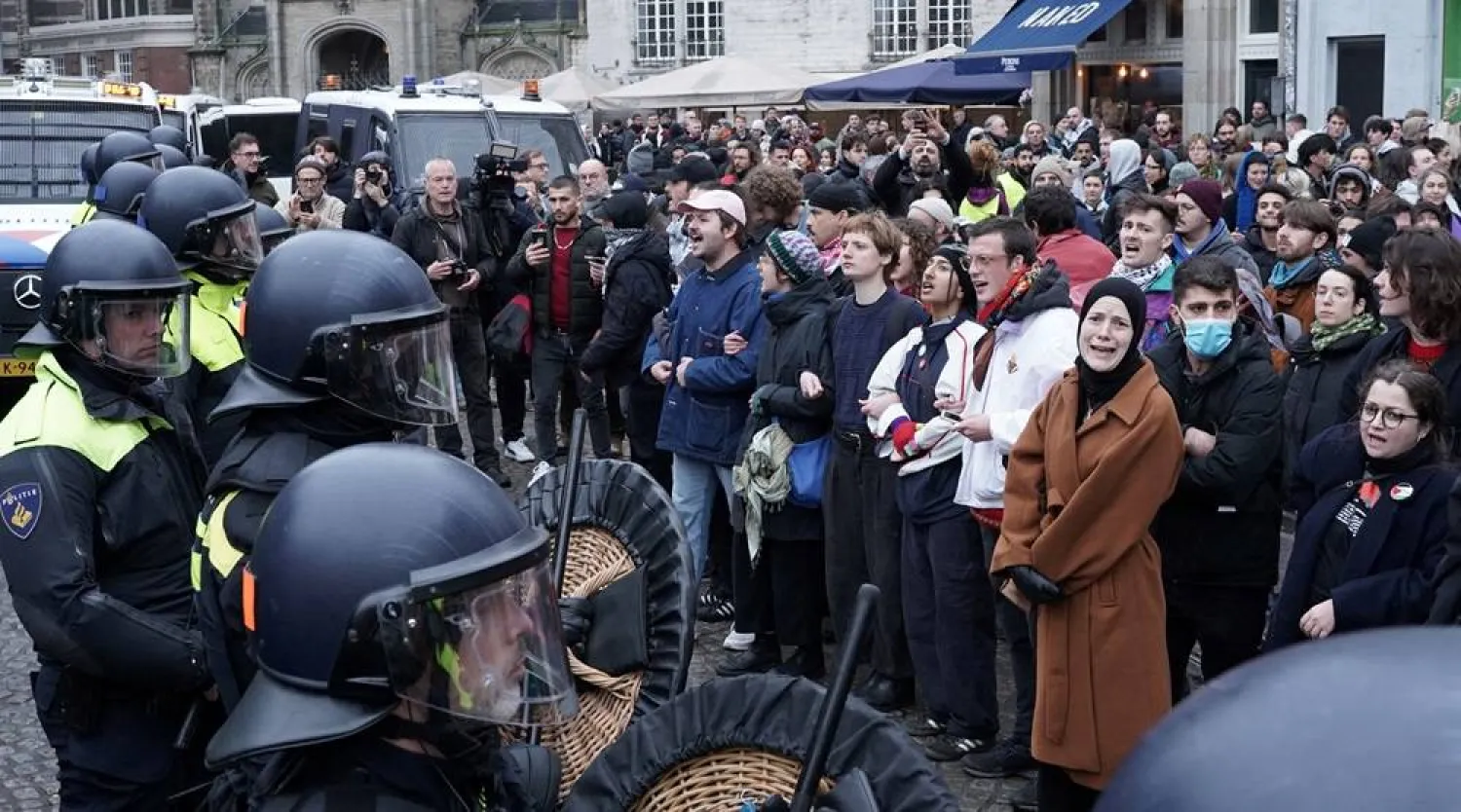Dutch police took away more than 100 pro-Palestinian protesters on Sunday who defied a ban on demonstrations in Amsterdam following clashes this week involving Israeli football fans.
Hundreds of demonstrators gathered in the capital's Dam Square, chanting "Free Palestine" and "Amsterdam says no to genocide", in reference to the Gaza war.
Israel denies allegations of genocide in its more than year-long offensive against Palestinian group Hamas.
After a local court ratified the city council's ban, police moved in, instructing protesters to leave and rounding up more than 100 of them, according to a Reuters journalist.
They were put on buses and dropped off on the outskirts of the city, police spokesperson Ramona van den Ochtend said, without confirming how many had been picked up.
One protester was taken to an ambulance bleeding.
The ban, which authorities extended for another four days until Thursday, has been in place since Friday after attacks on Israeli football supporters following a match between visiting Maccabi Tel Aviv and Ajax Amsterdam.
At least five people were injured in assaults that Dutch authorities and foreign leaders including Israel's Prime Minister Benjamin Netanyahu denounced as antisemitic.
DETENTIONS
Protest organizers said in a message on Instagram that they were outraged by the "framing" of unrest around the match as antisemitic and called the protest ban draconian.
"We refuse to let the charge of antisemitism be weaponized to suppress Palestinian resistance," they said.
Four people remain detained on suspicion of violent acts, including two minors. Another 40 people have been fined for public disturbance and 10 for offences including vandalism.
As well as suffering attacks by what the mayor called "antisemitic hit-and-run squads", visiting Israeli fans burned a Palestinian flag and used sticks, pipes and rocks in clashes with opponents, according to a video and police report.
Before the match against Ajax, Maccabi fans tore a Palestinian flag off a building in Amsterdam and chanted anti-Arab slogans on their way to the stadium. There were also reports of Maccabi fans starting fights.
Local police chief Olivier Dutilh told the court on Sunday that the protest ban was still needed as antisemitic incidents were continuing, including people being pushed out of taxis and told to show their passports on Saturday night.
The Netherlands has seen a rise in antisemitic incidents since the Gaza war began in October last year.
More than 43,000 Palestinians have been killed and millions displaced in Israel's military offensive on Gaza, according to health officials there, launched after Hamas killed 1,200 Israelis and took more than 250 hostage in a cross-border attack, according to Israel.









